
OR
Editorial
Rethinking Tribute Beyond Public Holidays
Published On: September 14, 2023 07:45 AM NPT By: Republica | @RepublicaNepal

The nation is observing a public holiday today to mourn the passing of Subash Chandra Nembang, the esteemed Chairperson of the Constituent Assembly. He was one of the architects of Nepal's new constitution, paving the way to resolve the Maoist conflict peacefully and embrace a federal republican system. Nembang, a prominent figure in the political landscape, left an indelible mark on the nation. His pivotal role in drafting the new constitution transformed Nepal from a country marred by Maoist violence into a beacon of peace and a federal democratic republic. Nembang's dedication to building a more equitable and just society is worthy of admiration and respect. While the gesture is undoubtedly well-intentioned and aims to pay tribute to a man of great stature and significance, it is crucial to ponder whether the practice of granting a public holiday is the most effective way to honor individuals who have made exemplary contributions to our society and the country.
It is high time for us to critically assess the practice of declaring public holidays for such occasions. The proliferation of public holidays, from the federal to the local level, has reached a point where it significantly reduces the number of working days in our country. In a nation with 52 Saturdays in a year, a staggering 35 days have been designated as public holidays by the federal government for the year 2080. These holidays encompass a wide array of festivals, birthdays, and anniversaries, including the 6-day Dashain and 5-day Tihar breaks. Holidays are granted for specific events like Prithvi Jayanti and People's War Day, as well as regional festivities such as Gaijatra, Ghodejatra, Matsyendranath chariot procession, and Indrajatra in the Kathmandu Valley. Respective communities also receive holidays for festivals like Teej and Jitiya, while special occasions like Falgunanda Jayanti, Guru Nanak Jayanti, and Mohammad Jayanti warrant additional days off.
This surplus of public holidays has not only led to an adverse impact on productivity but has also disrupted the continuity of work and economic activities. With more than one-third of the year designated as holidays, it is essential to revisit the concept of public holidays and consider alternative ways to honor individuals who have made outstanding contributions to the nation. One alternative is to organize special functions and ceremonies dedicated to the memory of such individuals. These events can serve as platforms for reflection, dialogue, and education, allowing the public to gain a deeper understanding of the person being honored and their contributions. Such gatherings could also facilitate discussions on how to carry forward their legacies, thereby fostering a sense of collective responsibility. Furthermore, creative avenues of tribute can be explored. Museums, art exhibitions, seminars, and scholarships in their name can serve as lasting memorials that contribute to the intellectual and cultural development of the nation. These initiatives would not only celebrate the achievements of remarkable individuals but also inspire future generations to aspire to greatness.
It is important to acknowledge that public holidays, when used judiciously, can provide opportunities for relaxation, family time, and cultural celebrations. However, the overabundance of holidays threatens to erode the work ethic and economic progress of our nation. Therefore, we must strike a balance between public holidays and ensuring the smooth functioning of our society. While the decision to declare a public holiday to mourn the passing of Nembang was made with the best of intentions, it is crucial to reconsider the practice of granting public holidays for such occasions. We must explore more meaningful and sustainable ways to pay tribute to individuals who have left an indelible mark on our nation. By doing so, we can strike a balance between honoring our heroes and ensuring the continued growth and development of Nepal.
You May Like This
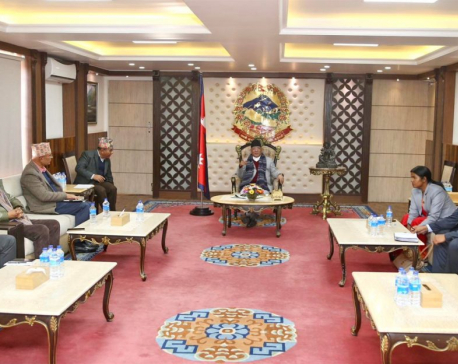
Govt announces one-day national mourning on Monday after deadly plane crash
KATHMANDU, Jan 15: An emergency meeting of the cabinet held on Sunday afternoon decided to observe one-day national mourning on... Read More...
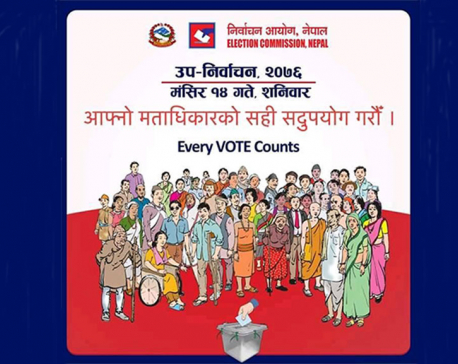
By-election 2019: Three-day holiday given at schools in Kaski constituency-2
KASKI, Nov 27:A three-day holiday has been announced for schools in Kaski district constituency-2, which have been assigned as the... Read More...

Ariana Grande laments late ex Mac Miller as ‘sweetest soul’
LOS ANGELES, Sept 15: Ariana Grande posted a tribute Friday to her ex-boyfriend Mac Miller a week after the hip-hop... Read More...
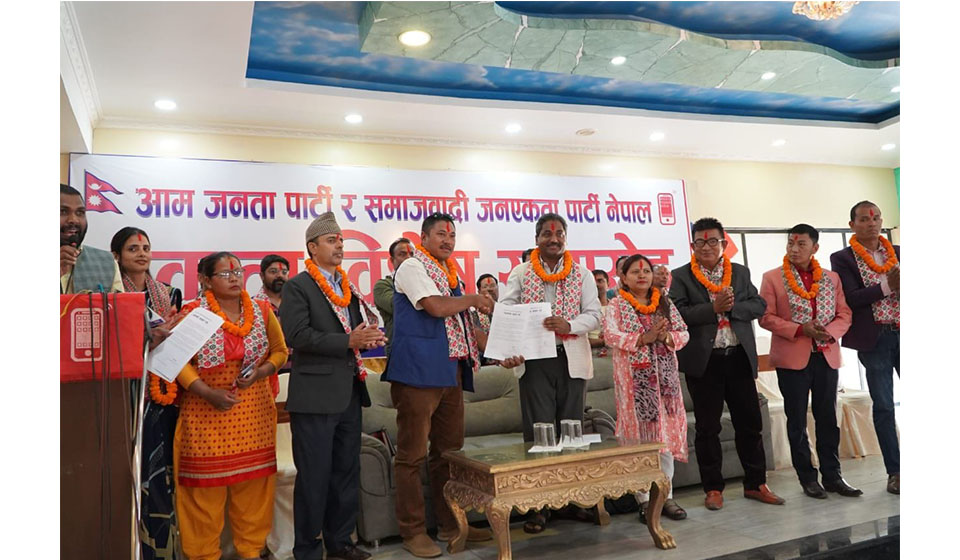


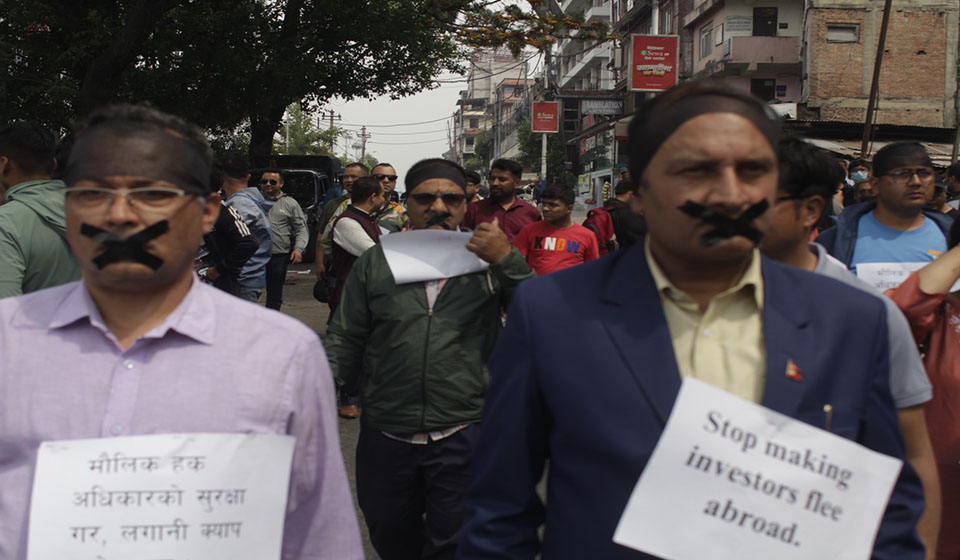
Just In
- Aam Janata Party and Samajwadi Jana Ekata Party merge
- 1,600 participants confirmed for Nepal Investment Summit
- Ilam-2 by-elections held peacefully, vote count likely to start tonight
- NEA schedules five-day power cut across Kathmandu Valley for underground cable installation
- Hundreds of passengers including foreign tourists in distress as poor visibility halts flights to and from PRIA
- Nepal clinches thrilling victory over West Indies 'A' in T20 cricket match
- Capital Market Struggle Committee stages protest demanding protection of domestic investors (Photo Feature)
- Captain Paudel scores half-century in T20 match against West Indies 'A'











-1200x560-wm_20240427144118.jpg)
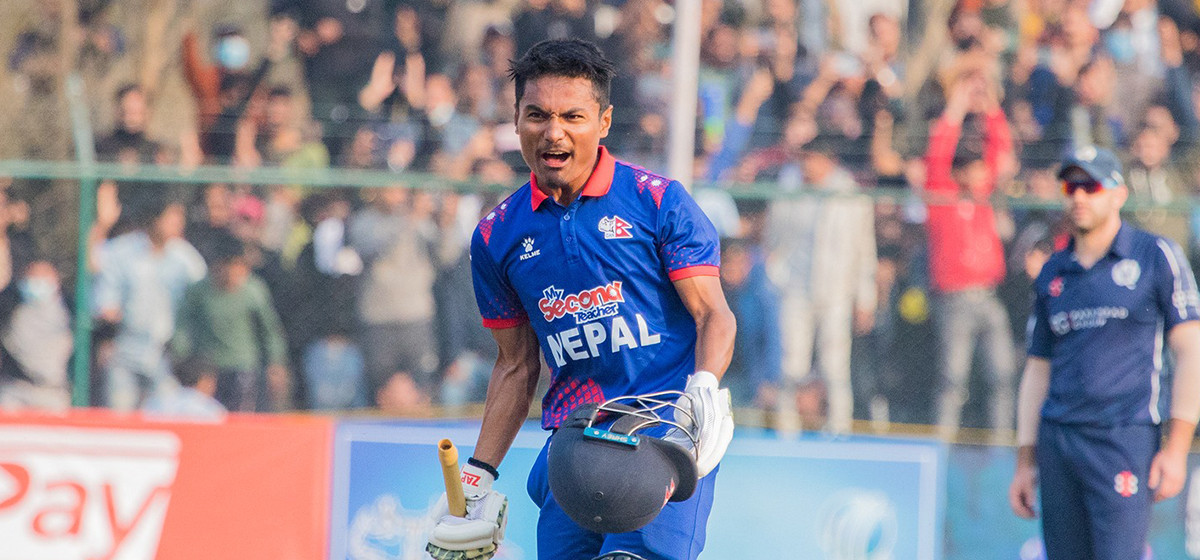
Leave A Comment